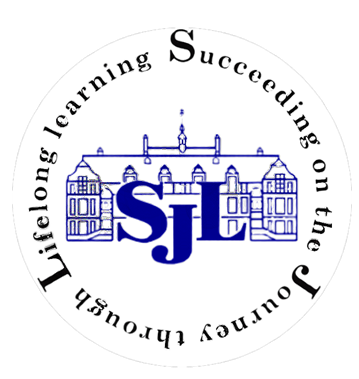The School Day (Foundation Stage)
The School Day
8.50am: The school gates open. Teachers will be in the playground ready to greet your child.
8.55am: All gates to the playground are locked.
Children arriving late for registration must sign in at the office. They will be given a late card to take to class informing the class teacher that the child is registered. All children must register for safety reasons in the event of an evacuation.
Lunchtimes:
11.30am to 1pm: Nursery lunch & outside play.
12pm to 1pm: Reception, Year 1 and 2 lunch & outside play.
12pm to 1pm: Years 3 and 4 lunch and outside play.
12pm to 1pm: Years 5 and 6 lunch & outside play.
3.30pm: School finishes. Parents/Carers are to pick up Nursery children from the nursery playground.
(This is an average of 33 hours per week)
If you are late the class teacher will take your child to the community room where their name will be written in the late book. When your child is collected the time of collection will be written in the book and the adult will be asked to sign.
If you know you are going to be late OR that you are unable to collect your child and will be sending another responsible adult please phone the office on 020 7385 2107 before 3.15pm. This will ensure that we can get the message to your child's teacher and to your child. We aim to make changes to your child's routine as smooth as possible so an early call is appreciated.
THE CURRICULUM
At Sir John Lillie Primary School we believe that every child deserves the best possible start in life and we aim to ensure that every child can fulfill their potential through a challenging, creative and supportive curriculum. We encourage each child to take the fullest advantage of a wide range of opportunities and experiences that are tailored to their individual needs and development.
The Foundation Stage curriculum is made up of 7 areas of learning:
The prime areas:
- Personal, Social & Emotional Development
- Communication & Language
- Physical Development
The Specific areas:
- Literacy
- Mathematics
- Understanding the World
- Expressive Arts & Design
Each area of learning is implemented through planned, purposeful play and through a mix of adult led and child initiated activities. We understand that play is an essential part of children’s development as they learn to explore, problem solve and interact with others.
Children have access to their own outside area and they are offered opportunities to learn and play both inside and outside. Children are encouraged to plan their own learning during 'planning time' when they choose the activity or area they wish to go to. Adults also plan specific activities where the children are expected to work in small groups alongside an adult for short periods of time. At the end of sessions, children are encouraged to talk about and reflect on their learning.
All children participate in short daily phonics sessions, which are tailored to their individual needs and abilities and where their knowledge of letter sounds and reading and writing is developed.
Children take part in weekly PE lessons and singing lessons, as well as a short weekly assembly where the 'Stars of the Week' are announced and certificates are handed out.
When planning and guiding children’s activities, practitioners also take into account the different ways that children learn and this informs future planning and activities.
The three characteristics of effective teaching and learning are:
- Playing and Exploring – children investigate and experience things and ‘have a go’
- Active Learning – children concentrate and keep on trying if they encounter difficulties and enjoy achievements
- Creating and Thinking Critically – children have and develop their own ideas, make links between ideas and develop strategies for doing things.
